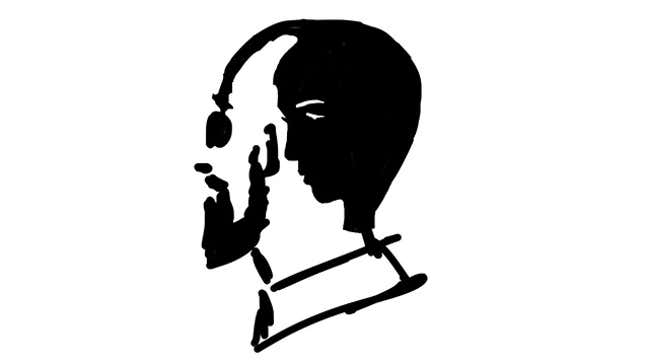On Knowing What Your Therapist Really Thinks About You
Latest

In his book Half Empty, the late David Rakoff humorously describes the ambivalence he feels upon finding out what his therapist — who he’s terminating sessions with — genuinely thinks about him:
Turning things around, I asked him what his feelings were about our ending things. ‘I’m incredibly angry,’ he responded fondly. ‘How dare you. You should at least have to come and have coffee with me once a week.’ I asked if he felt this way about most of his patients. ‘Not really,’ he responded. Sigh. Should you happen to be possessed of a certain verbal acuity coupled with a relentless hair trigger humor and surface cheer spackling over a chronic melancholia and loneliness— a grotesquely caricatured version of your deepest self which you trot out at the slightest provocation to endearing and glib comic effect, thus rendering you the kind of fellow who is beloved by all yet loved by none, all of it to distract, however fleetingly, from the cold and dead-faced truth that with each passing year you face the unavoidable certainty of a solitary future in which you will perish one day while vainly attempting the Heimlich maneuver on yourself over the back of the kitchen chair— then this confirmation that you have triumphed again and managed to gull yet another mark, except this time it was the one person you’d hoped might be immune to your ever-creakier, puddle-shallow, sideshow-barker variation on ‘adorable,’ even though you’d been launching this campaign weekly with a single-minded concentration from day one— well, it conjures up feelings that are best described as mixed, to say the least.
When I found out what my therapist thought of me, there were no mixed emotions. I was elated that we both welled up in our last session and admitted that we were going to miss each other. Not only were those feelings true, but they also helped affirm the work we had been doing together. While Rakoff imagined that his therapist’s opinion spoke only to his most shallow qualities, I felt the opposite. I had let mine see the darkest, least likable parts of me and she liked me anyway.
While we had very different reactions, both of us (and yes, I’m aware that this is probably the only time in my life where I’ll get to refer to me and David Rakoff as an “us”) had the privilege of experiencing a fairly honest relationship with the person we had put in charge of our mental healthcare. I say “privilege” because it worked for me — I liked having my therapist explain what she thought was going on in my head as it was happening instead of analyzing me in her notes for some grand diagnosis later. And if there was something she wasn’t telling me, I trusted that she had a reason for it.
Allowing patients more access to their therapist’s analysis is slowly gaining popularity. This can mean a therapist talking to their client in the open way that mine talked to me or, on the more experimental side of things, it can mean making their notes available online for their client’s perusal — although this extreme is not without controversy.
Giving patients complete access to their therapist’s notes has major risks. They can be confused or offended by the information they read, they can stop seeking treatment and it leaves their information more vulnerable to third parties — a particular danger if the client is in an abusive relationship. Yet proponents of the practice also argue for its benefits.
In “What the Therapist Thinks About You,” an article recently published in the New York Times, Dr. Tom Delbanco — a Harvard professor of medicine who has launched a project to observe the effects of sharing notes with patients — claims that this kind of open communication is the next “revolution” of mental healthcare.
-

-

-

-

-

-

-

-

-

-

-

-

-

-

-

-

-

-

-

-

-

-

-

-

-

-

-

-

-

-

-

-

-

-

-

-

-

-

-

-








































